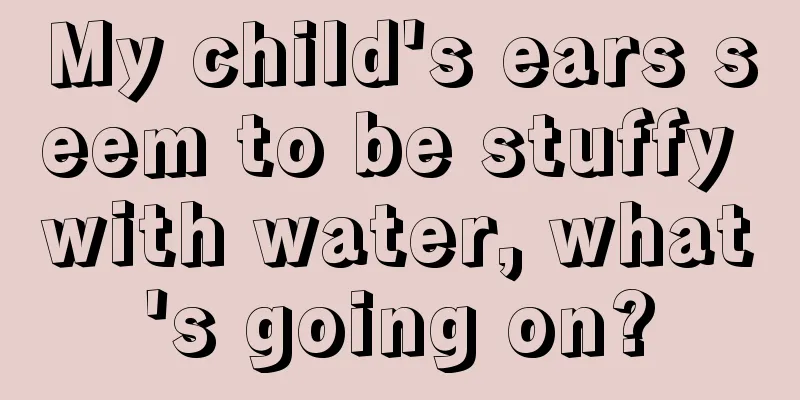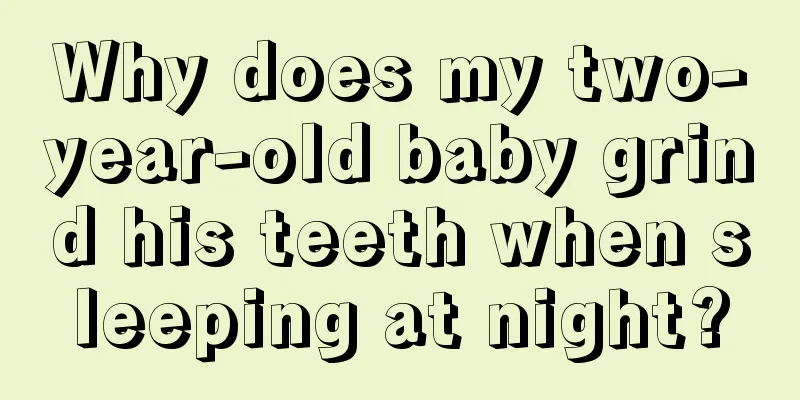My child's ears seem to be stuffy with water, what's going on?

|
If a child has symptoms of stuffy ears as if water is in the ears, he or she should go to the hospital to the ENT department for examination in time to check the child's external auditory canal and eardrum. Generally, this is related to foreign body blockage in the external auditory canal. In addition, secretory otitis media is a relatively common cause. Targeted treatment can be carried out based on the specific examination results. This has a greater impact on the child's hearing. If treatment is not paid attention to, it may lead to hearing loss. My child's ears seem to be stuffy with water, what's going on? The most common symptoms are a feeling of stuffiness or blockage in the ears, hearing loss and tinnitus. It often occurs after a cold or occurs unconsciously. Sometimes changes in head position can improve hearing. There is self-auditory enhancement. Some patients have mild ear pain. Children often show slow listening or poor concentration. (1) Hearing loss : decreased hearing and enhanced self-hearing. When the head tilts forward or toward the healthy side, hearing may temporarily improve (positional hearing improvement) because the effusion leaves the cochlear conduction. When the effusion is viscous, hearing may not change with changes in head position. Children are often brought to the doctor by their parents because of their slow response to sounds, poor concentration, and poor academic performance. If one ear is diseased and the hearing in the other ear is normal, it may not be noticed for a long time and may only be discovered during a physical examination. (2) Earache : Acute cases may cause dull earache, which is often the first symptom of the patient. It may be continuous or cramping. In chronic cases, ear pain is not obvious. This disease is often associated with a feeling of blockage or stuffiness in the ear, which can be temporarily relieved by pressing the tragus. (3) Tinnitus : It is usually low-pitched and intermittent, such as "crackling", buzzing, and the sound of running water. When the head moves or when yawning or blowing the nose, a sound of air passing through water may be heard in the ears. (4) The patient’s skin around the neck feels numb and the patient may feel depressed. Through the above content, you can understand the early symptoms of secretory otitis media. When these symptoms appear, you should take timely treatment measures and do not delay to avoid unnecessary impact on you. Common treatments include : 1. Clear the accumulated fluid and improve ventilation . 2. Actively treat nasopharyngeal or nasal diseases . If secretory otitis media in children is caused by nasopharyngeal or nasal diseases, treatment should be targeted at the cause. Such as adenoidectomy, nasal septum correction, inferior turbinate surgery, nasal polyp removal, etc. Tonsillectomy should be performed for patients with particularly enlarged tonsils and recurrence of secretory otitis media. 3. Drug treatment . Commonly used drugs include antibiotics and other synthetic antibacterial drugs. |
<<: How is the dosage of medication for children calculated?
>>: What to do if your baby has wax in his ears
Recommend
Why does a one and a half year old baby have green diarrhea?
Some mothers' babies are still having green a...
The dangers of holding your baby upright
When a baby is born, everyone will be very happy ...
The child suddenly foams at the mouth
When taking care of their children, many parents ...
What medicine is good for babies with fever and colds?
Babies have weak body resistance. Even a little d...
How to prevent gum inflammation in babies
Every child will grow deciduous teeth a few month...
What should I do if my child has a cough and a runny nose?
We all know that newborns have very weak resistan...
How to deal with a crying baby who won't sleep
New mothers all have this problem, that is, their...
Why is the baby not growing?
Adolescence is the main period of growth and deve...
What causes stomach pain and vomiting in children?
Children's bodies are very different from our...
What should I do if my five-year-old child coughs and has phlegm?
When a child has a cough, the parents are probabl...
What to do if your child has precocious puberty
Precocious puberty is the most common disease now...
One-year-old baby has a pimple on the back of his head
Those who have babies at home know that parents a...
What are the effects of cerebral palsy in children?
Cerebral palsy is a relatively serious childhood ...
What disease causes chest tightness and sighing in children?
Generally speaking, people sigh mainly because th...
What to do if your child has pain around the belly button
Pain around a child’s belly button is a common di...









